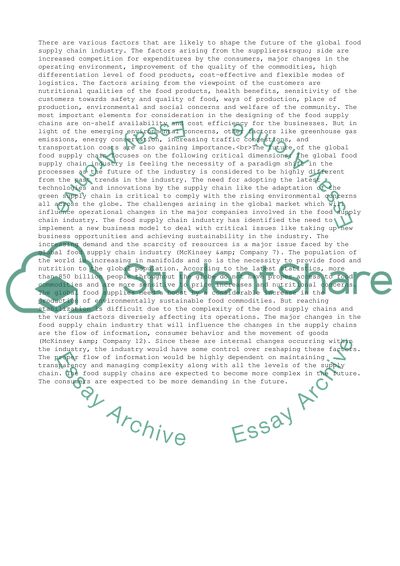Cite this document
(The Future of Food Supply Chain Coursework Example | Topics and Well Written Essays - 1750 words, n.d.)
The Future of Food Supply Chain Coursework Example | Topics and Well Written Essays - 1750 words. Retrieved from https://studentshare.org/management/1496772-the-future-of-food-supply-chain
The Future of Food Supply Chain Coursework Example | Topics and Well Written Essays - 1750 words. Retrieved from https://studentshare.org/management/1496772-the-future-of-food-supply-chain
(The Future of Food Supply Chain Coursework Example | Topics and Well Written Essays - 1750 Words)
The Future of Food Supply Chain Coursework Example | Topics and Well Written Essays - 1750 Words. https://studentshare.org/management/1496772-the-future-of-food-supply-chain.
The Future of Food Supply Chain Coursework Example | Topics and Well Written Essays - 1750 Words. https://studentshare.org/management/1496772-the-future-of-food-supply-chain.
“The Future of Food Supply Chain Coursework Example | Topics and Well Written Essays - 1750 Words”, n.d. https://studentshare.org/management/1496772-the-future-of-food-supply-chain.


